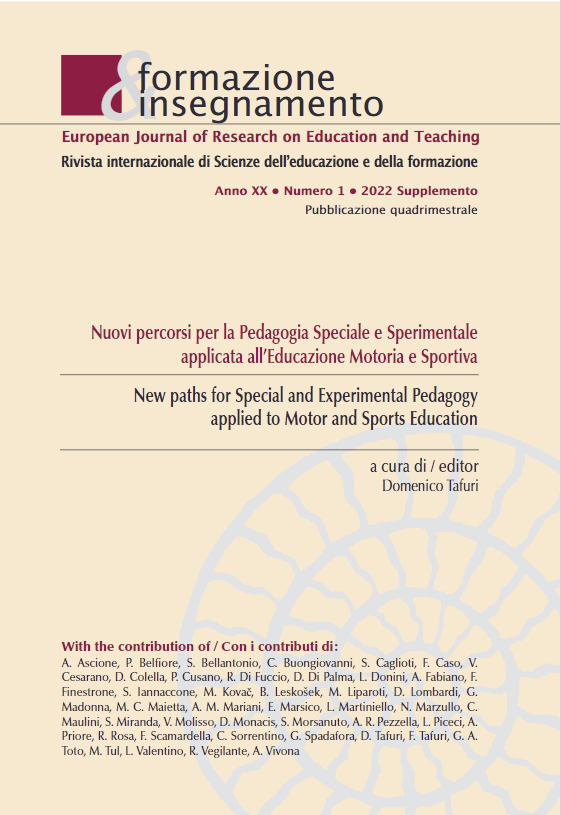A pilot study identifying educational strategies for health promotion in adult women in the COVID-19 era
DOI:
https://doi.org/10.7346/-feis-XX-01-22_14Keywords:
Health, Women, Physical activity, Sleep, DietAbstract
COVID-19 pandemic has drastically reduced physical activity levels in the global population, due to the limitation of movements and social life imposed by local governments. Sedentary behaviors are known to be strictly associated with higher risks to develop diseases (Allen et al., 2017). Italy was the first country in which severe lockdown periods were imposed on the population, to limit virus circulation. Our study aimed to analyze lifestyle habits in a group of 14 volunteer women, aged from 40 to 50 years, for 2 years, in a telemonitoring manner. Semi-Structured questionnaires on lifestyle habits, anthropometric measures, sleep, physical activity monitoring by smartphone were recorded before, during, and after lockdown. Statistical analysis was conducted with the t-Student test and ANOVA, normal distribution of data was tested with the Shapiro Wilk test. During the lockdown, the daily number of steps shows a reduction of -65%. The number of weekly walking kilometers was drastically reduced by -70%. No statistically significant improvements were registered in the Pittsburgh Sleep Quality Index (PSQI), although the number of daily steps had returned to pre-COVID levels. The study highlights that educational strategies are necessary to avoid the risks of prolonged sedentary behaviors.
Downloads
Published
How to Cite
Issue
Section
License
Copyright (c) 2022 Pensa MultiMedia

This work is licensed under a Creative Commons Attribution 4.0 International License.
Formazione & insegnamento is distributed under Attribution 4.0 International (CC BY 4.0).
For further details, please refer to our Repository & Archiving Policy, as well as our Copyright & Licensing Terms.





